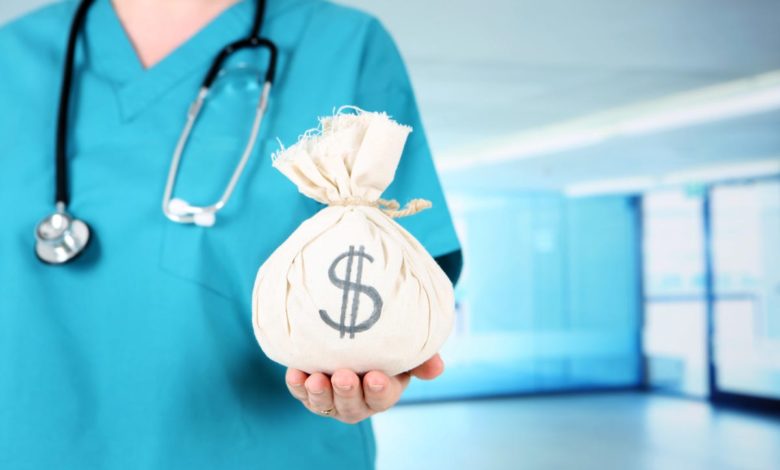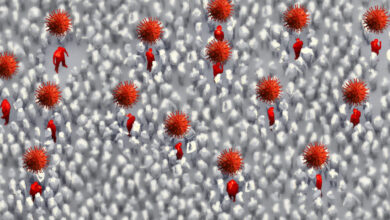Does Your Doctor Work For A Private Equity Company — And Should You Care?

One of many results of the Covid-19 pandemic has been a pointy improve within the variety of physicians employed by hospital methods or company entities. In accordance with the Physicians Advocacy Institute (PAI), 70% of physicians are now employed by hospital systems, private equity firms, or health insurers, whereas solely 30% are a part of unbiased practices. Inside that broader class, it’s laborious to get exact information on the variety of physicians particularly employed by non-public fairness backed firms, however the PAI report notes “The sharpest improve in acquisitions and employment throughout 2019 and 2020 was by company entities akin to non-public fairness corporations and well being insurers (32%).”
Physicians employed by bigger entities can nonetheless present exemplary medical care. My very own main care doctor and the orthopedic surgeons who’ve operated on my hip and knee are each employed by giant hospital methods.
Nonetheless, there’s an ongoing debate inside the medical neighborhood in regards to the impact of personal fairness corporations particularly buying possession of once-independent medical practices, and the following results on affected person care. I’m most aware of the talk inside my very own discipline of radiology, however most of the points additionally apply to different medical specialties.
Below the non-public fairness mannequin, an funding fund purchases a medical follow. The present doctor homeowners/companions obtain some mixture of money and/or inventory within the bigger entity (usually with a vesting interval and different restrictions akin to a non-disparagement clause in the event that they go away the follow). In trade, they work as staff for the brand new homeowners who set enterprise coverage. As a result of the brand new homeowners/buyers usually take a proportion of income off the highest, the physicians make much less going ahead, along with relinquishing management of their follow to the brand new homeowners.
Supporters of the non-public fairness mannequin argue that these acquisitions might help struggling medical practices which can be scraping by on skinny margins to enhance effectivity by economies of scale, get higher contracts by elevated bargaining energy, and achieve entry to capital for buying data know-how and different infrastructure that allows them to follow extra environment friendly medication.
Critics of personal fairness argue that the brand new homeowners could also be pushed extra by income slightly than offering high quality care. They might reduce corners or attempt to strain physicians to squeeze in additional sufferers in a workday to take care of the revenue stream.
In a sobering analysis, Dr. Ben White (a radiologist) mentioned what he considers the largest draw back to the non-public fairness mannequin: “There merely isn’t sufficient operational wiggle room for an organization to take a giant income proportion off the highest with out altering the perform or construction of the underlying enterprise in undesirable methods. There aren’t any exponential earnings like by promoting software program. Docs earn cash linearly by affected person care. You earn extra money by doing extra work. There is no such thing as a free lunch.”
Within the discipline of dermatology, Gretchen Morgenson of NBC News reported that medical employees in some non-public fairness owned practices have been pressured to “prioritize revenue over quality of care” and to carry out “dermatologic procedures of questionable medical necessity” on nursing residence sufferers.
Dr. White describes how the pressures of company homeowners who prioritize short-term earnings over long-term high quality of care can create a “death spiral” the place working situations endure, affected person care declines, physicians go away quicker than new ones may be recruited, thus placing extra strain on these employees who stay, till the medical follow implodes.
White can be cautious to notice that, “Not each PE-backed group is dangerous to work for and definitely not each unbiased group is sweet.” Impartial practices can endure from dysfunctional cultures, whereas many physicians working in a employment mannequin can (and do) follow wonderful medication.
(Among the execs and cons of the non-public fairness mannequin are properly summarized by Emily Hayes in her piece, “What’s The Endgame For Private Equity In Radiology?”)
Is well being care being overly pushed by {dollars} and cents?
getty
I’ve lengthy argued that one of many issues of government-run well being care in addition to the present US system of insurance-based well being funding is that third events can too usually compromise the doctor’s skill to behave in the most effective pursuits of his or her affected person. As extra physicians discover themselves working for personal fairness based mostly entities, they and their sufferers face an identical danger.
In abstract: Readers ought to concentrate on the rising development in direction of non-public fairness possession of medical practices in US well being care. For those who’re a affected person and also you’re not sure in regards to the high quality of the care you might be receiving, you may need to ask your docs who they work for. You may discover the reply shocking — and informative.




